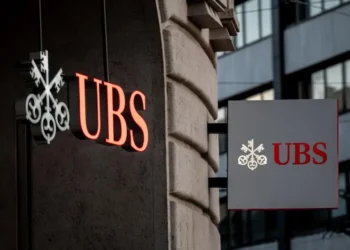Institutional demand for Bitcoin is accelerating at a blistering pace. On May 15, BlackRock’s Bitcoin ETF (IBIT) recorded $410 million in inflows in a single day, fueling speculation that the next leg of the bull run may be institutionally driven. But BlackRock isn’t alone. New treasury allocations from public companies in Brazil and China are reinforcing a global pattern: Bitcoin is becoming a strategic asset for governments and corporations alike.
Table of Contents
ToggleBlackRock’s IBIT Surges Past $18 Billion AUM
BlackRock’s IBIT has now surpassed $18 billion in total assets under management, and its consistent inflows are setting records. According to The P Fund on X, the May 15 inflow of $410 million was among the highest daily totals since the ETF’s inception in January.
$IBIT Institutional Ownership – Q1 2025 Overview
— Trader T (@thepfund) May 16, 2025
– Number of institutional holders increased by 19%
– Institutional ownership decreased to 25%, down from 30%
(Based on current insights, Q2 is expected to show improvement—no cause for concern.) https://t.co/kDCScJvCWI pic.twitter.com/5T7C08RRIn
With cumulative inflows for Bitcoin ETFs across all issuers now exceeding $4.5 billion, it’s clear that the spot ETF approval in the U.S. has opened the floodgates for serious capital rotation.
Source: SoSoValue
Brazil: Méliuz Goes All-In on BTC
In South America, Brazilian public company Méliuz has just become the country’s first corporate Bitcoin treasury holder. As revealed in a post by Israel Salmen, the company purchased 274.52 BTC for $28.4 million, citing a BTC yield of over 600% on previous positions.
Historic day! Our shareholders have approved, by a wide majority, the transformation of Méliuz into the first Bitcoin Treasury Company listed in Brazil.
— Israel Salmen (@IsraelSalmen) May 15, 2025
And today, we took another step forward:
Acquired 274.52 BTC for US$ 28.4M
Average price: US$ 103,604
Achieving a BTC Yield of… pic.twitter.com/y12JlKwW6N
The move officially positions Méliuz as a pioneer of the corporate Bitcoin treasury movement in Latin America — and signals that emerging markets are now treating BTC as a hedge, not a gamble.
China’s DDC Plans $300M Bitcoin Treasury Move
Meanwhile, in Asia, DDC Enterprise has announced plans to accumulate 5,000 BTC as part of a long-term treasury strategy. In a shareholder letter from founder & CEO Norma Chu, the company emphasized its desire to diversify reserves and reduce macroeconomic risk.
“We are embarking on a pioneering initiative to position DDC at the forefront of digital asset innovation,” Chu wrote, calling Bitcoin “a cornerstone” of the firm’s future financial infrastructure.
This marks one of the largest planned corporate Bitcoin purchases in Asia, and reflects growing alignment between institutional reserves and digital store-of-value strategies.
Institutional FOMO Is Real — and It’s Global
Whether through ETFs, public companies, or sovereign treasuries, the signal is clear: Bitcoin’s role as a reserve asset is solidifying.
- BlackRock is showing how ETFs unlock serious institutional liquidity.
- Brazil is proving that corporate treasuries are ready to follow.
- China’s DDC is mapping out a multi-year strategic play built around BTC.
With the U.S., Latin America, and Asia all participating in Bitcoin’s institutionalization, the 2025 narrative is no longer speculative — it’s unfolding.
Final Thoughts
We’re witnessing a Bitcoin demand curve driven by some of the largest players in global finance. As ETFs attract billions and corporations start to see BTC as a reserve necessity, the current price action may be just the beginning of a much bigger shift.
Institutional FOMO is no longer a prediction — it’s happening.










